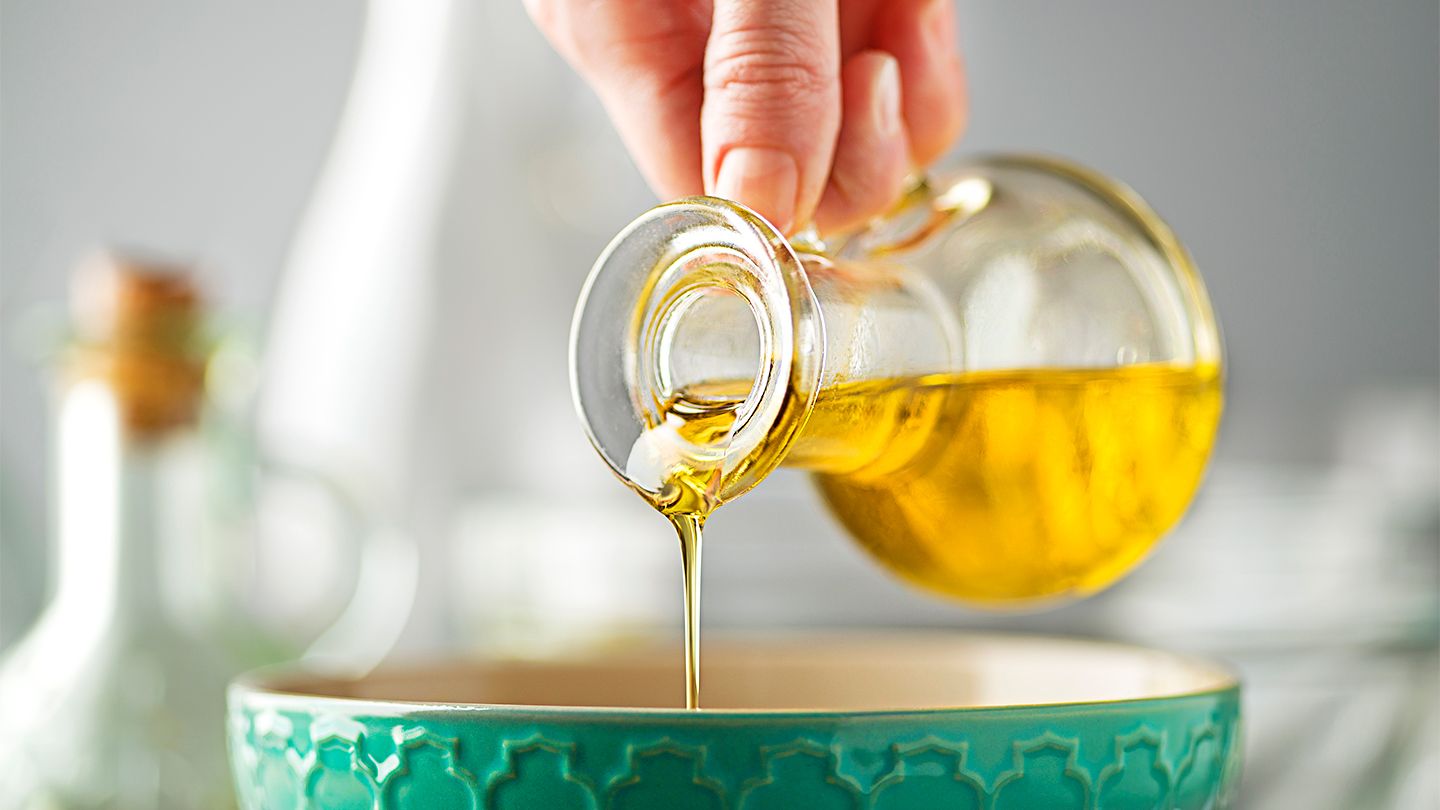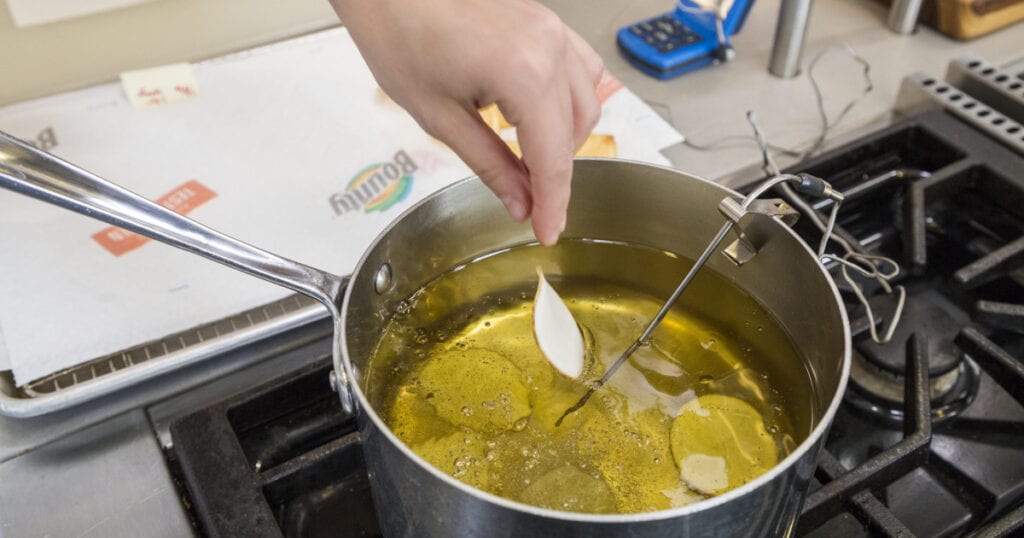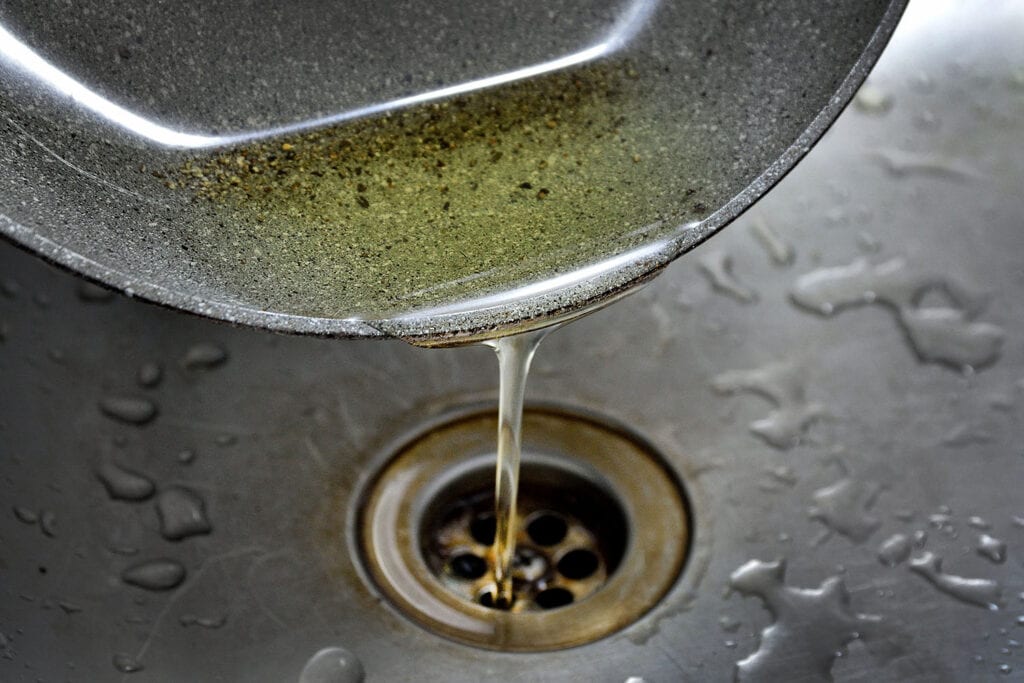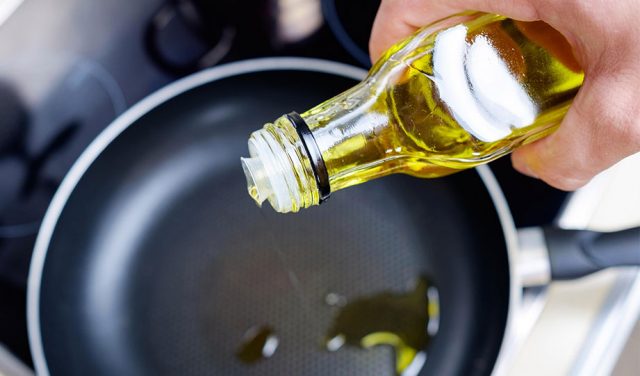How to Recycle Used Cooking Oil – 2024 Guide

Cooking oils serve major functions in homes and restaurants ranging from frying vegetables and beef to deep frying chicken, turkey, potato fries, browning of the Brussel sprouts, and so much more. They are of various types and brands and are often in either liquid or solid forms. Cooking oil plus grease enhance a meal’s flavor. Most deep-fried foods would not have their delicious and scrumptious tastes if they were not to be deep fried.
The quantity of the oil that is used in restaurants and homes on a daily basis is a lot. This amount increases by a big margin, more so, during the holidays. However, what do you do with cooking oil plus grease once you are done using it? Where do enormous amounts of cooking oil go? Do you get rid of it or recycle it?
Used cooking oil and grease can be a real mess if not handled properly. Once you are done using your cooking oil, you can choose to recycle it or discard it, based on the cooking oil’s condition. Should you choose to recycle (best choice), then you must know that there are two common ways used cooking oil can be recycled. You have to decide the right one to use, given the state of your already used oil.
Ways Oil Can Be Recycled
The two common ways of recycling used cooking oil include:
1. Re-using your cooking oil

This is dependent on the state of the cooking oil. The used cooking oil must have been utilized properly. It should not have been subjected to heat beyond its smoke point. You can follow the following procedures to reutilize your cooking oils plus fats.
- Strain your look-warm oil to eliminate any remains of food particles. You can utilize a cheesecloth, coffee filters, or paper towels to do the straining.
- Properly store the strained oil. The best places to do so is either in a fridge, freezer, or any place that is cool and dark.
- Perform some tests on the used oil to ensure that it is not rancid before reusing it. The easiest test is by smelling the oil, and taking a look at its color. If it doesn’t have a strong smell and it’s almost transparent, it should be fine for another cooking.
The used oil can be reused for deep-frying, baking, pan-frying plus sautéing. You can only reuse the oil for a limited number of times. Hence, once you sense some bad smell, then dispose of the oil properly in the trash cans. Still, if oil is reusable enough, you can store it for only a month or two. Anything more than that may be dangerous for your health.
Although a great way to save the environment and some of your money, this isn’t the healthiest option. Depending on your equipment and the way you store the oil, you can reuse it up to five times. However, if you don’t use a deep fryer in your household, it’s better to avoid this process, since reusing cooking oil may have detrimental effects on your health, increasing the risks of high cholesterol, and even creating a possibility for white blood cells infection.
2. Locating a local collection point

According to mbpsolutions.com cooking oil recycling has become a very common phenomenon, especially in developed countries. It doesn’t come as a surprise that the first result in Google search after you type in “used cooking oil” is “used cooking oil near me”. Apart from the municipalities doing the collection of used cooking oil for recycling, several companies doing the recycling of used cooking oil have come up to aid in disposing of used oil. These companies use the oil to refine it into several products in petrochemical and refining industries. Fuel oils, lubricants, scrap feed, all of this is a fantastic result of people’s consciousness and a fantastic way to close the recycling circle with only a little bit of your effort.
Therefore, you can easily locate a recycling facility near you, store the oil properly and participate in one of the recycling programs near you. By doing so, you minimize the mess that is usually associated with kitchen grease, you also help to decrease the contamination of the environment plus you help convert the already used oil into biodiesel – a form of substitute energy. It is a clean-burning fuel that has multiple purposes.
To perform this form of recycling,
- Eliminate food specks by straining the used oil.
- Pour and store in a vessel that is sealable.
- Take the oil container to your local gathering point.
Note that you can mix all oil types in a single container unless directed otherwise. Also, you do not have to cool the container of used oil.
Ways of Not Disposing of Utilized Cooking Oil
Some people do not care how they dispose of their used oil. However, the ways that you discard your used oil does matter because of the cost and environmental negative implications it can have. The following is a list of ways you cannot dare use to dispose of used cooking oil.
1. Avoid pouring oil down the drain

May clog up your home drainage system. If it doesn’t clog your drain pipe immediately, it doesn’t mean that the coating won’t build over time, causing the pipes to clog severely. This may also lead to larger blockages in the municipal drainage lines resulting in costly damages.
2. Desist from pouring the used cooking oil outside
Pouring oil outside is not wise as the oil will be swept away by rainwater, and find itself in the sewer system, causing it to clog. Not only that, it may be dangerous for the wildlife, whether it’s about plants or animals. There are also high risks for water facilities since the oil can easily infiltrate in them through the ground.
3. Do not discard your cooking in your pile of waste

Oil in the compost heaps disrupts ail flow within the waste thus interfering with fertilizer formation. It’s better to avoid adding oil or opt for small amounts, since it’s been proven to slow down the composting process. Not only that, the smell of the oil may attract some animals you certainly don’t want near your home – rats, skunk or raccoon.
Conclusion
It is important to be conscious about the environment as well as your habits and routines. In your household, you are cooking meals daily. That means you produce huge amounts of cooking oil, which you have to store, reuse or recycle, in order to get rid of it in a proper way. That’s why you need to ensure that you are not disposing of used oil that can still be reused in the kitchen to cook other foods. If the quality of the oil is still proper, why waste it by throwing it away? Also, and maybe the most important thing is to avoid mishandling oil during disposal. Make sure you decide whether you want to reuse it or throw it away, and store it accordingly. Do not pour it into the sink, toilet or your garbage can. Instead, opt for a disposable container and then throw it away. And last, but not the least – take advantage of cooking oil recycling industries to convert the used oil to alternate fuel sources like biodiesel, and therefore help closing the recycling circle, contributing to these industries, the environment and your own health and safety.




